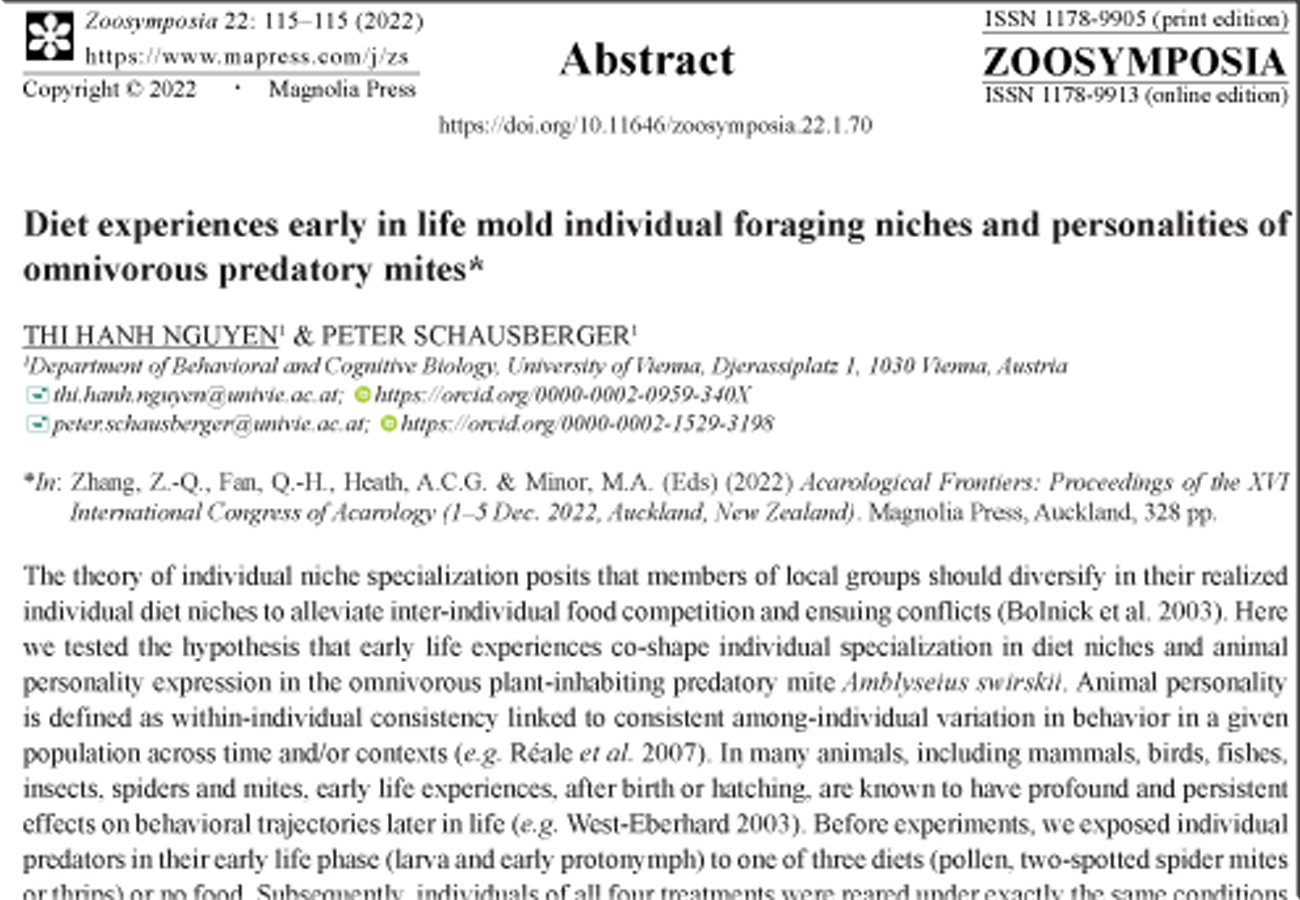Abstract
The theory of individual niche specialization posits that members of local groups should diversify in their realized individual diet niches to alleviate inter-individual food competition and ensuing conflicts (Bolnick et al. 2003). Here we tested the hypothesis that early life experiences co-shape individual specialization in diet niches and animal personality expression in the omnivorous plant-inhabiting predatory mite Amblyseius swirskii.
References
Bolnick, D.I., Svanbäck, R., Fordyce, J.A., Yang, L.H., Davis, J.M., Hulsey, C.D. & Forister, M.L. (2003) The ecology of individuals: incidence and implications of individual specialization. American Naturalist, 161, 1–28. https://doi.org/10.1086/343878
Réale, D., Reader, S.M., Sol, D., McDougall, P.T. & Dingemanse, N.J. (2007) Integrating animal temperament within ecology and evolution. Biological Reviews, 82, 291–318. https://doi.org/10.1111/j.1469-185X.2007.00010.x
West-Eberhard, M.J. (2003) Developmental plasticity and evolution. Oxford, UK, Oxford University Press, 794 pp. https://doi.org/10.1093/oso/9780195122343.003.0008


